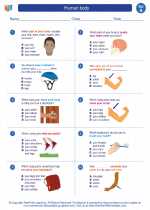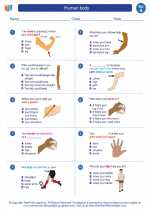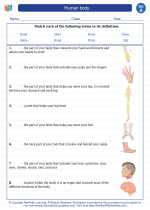Mechanical Engineering
Mechanical engineering is a diverse field that applies principles of engineering, physics, and materials science to design, analyze, manufacture, and maintain mechanical systems. Mechanical engineers work on a wide range of projects, from designing and developing new products to improving existing systems and processes.
Key Concepts in Mechanical Engineering
- Mechanics: Understanding the behavior of objects under the action of forces. This includes statics (objects at rest) and dynamics (objects in motion).
- Thermodynamics: Study of energy and heat transfer, and their effects on mechanical systems.
- Fluid Mechanics: Study of fluids (liquids and gases) and their behavior in motion and at rest.
- Materials Science: Understanding the properties and behavior of materials used in mechanical systems, such as metals, polymers, and composites.
- Mechatronics: Integration of mechanical systems with electronics and computer control, often seen in robotics and automation.
- Manufacturing Processes: Techniques for shaping, joining, and finishing materials to create mechanical components and products.
Study Guide
To excel in mechanical engineering, it's essential to have a strong foundation in mathematics, physics, and materials science. Here are some key topics to focus on:
Mathematics
- Calculus: Understanding rates of change and accumulation, which are essential for analyzing motion and energy transfer in mechanical systems.
- Linear Algebra: Solving systems of linear equations and understanding vector spaces, which are important for mechanical design and analysis.
- Differential Equations: Describing the behavior of dynamic systems, such as vibrations and fluid flow.
Physics
- Mechanics: Understanding forces, motion, and energy, including topics such as Newton's laws and work-energy principles.
- Thermodynamics: Learning about heat, energy transfer, and the laws that govern thermal systems.
- Fluid Dynamics: Studying the behavior of fluids, including pressure, flow, and viscosity.
Materials Science
- Material Properties: Understanding the mechanical, thermal, and electrical properties of common engineering materials.
- Mechanical Behavior: Learning about stress, strain, and deformation of materials under various loading conditions.
- Material Selection: Understanding the process of choosing the right material for a given application based on its properties and performance.
Engineering Tools
- Computer-Aided Design (CAD): Familiarize yourself with software tools used for creating 2D and 3D models of mechanical components and systems.
- Numerical Analysis: Learn about computational methods for solving engineering problems, such as finite element analysis and computational fluid dynamics.
- Experimental Methods: Gain experience with testing and measurement techniques used to validate designs and analyze mechanical behavior.
By mastering these fundamental concepts and tools, students can prepare themselves for a rewarding career in mechanical engineering, where they'll have the opportunity to contribute to the development of innovative technologies and solutions to complex engineering problems.
.◂Science Worksheets and Study Guides First Grade. Human body

 Activity Lesson
Activity Lesson
 Worksheet/Answer key
Worksheet/Answer key
 Worksheet/Answer key
Worksheet/Answer key
 Worksheet/Answer key
Worksheet/Answer key
 Worksheet/Answer key
Worksheet/Answer key
 Worksheet/Answer key
Worksheet/Answer key
 Worksheet/Answer key
Worksheet/Answer key
 Vocabulary/Answer key
Vocabulary/Answer key
 Vocabulary/Answer key
Vocabulary/Answer key
